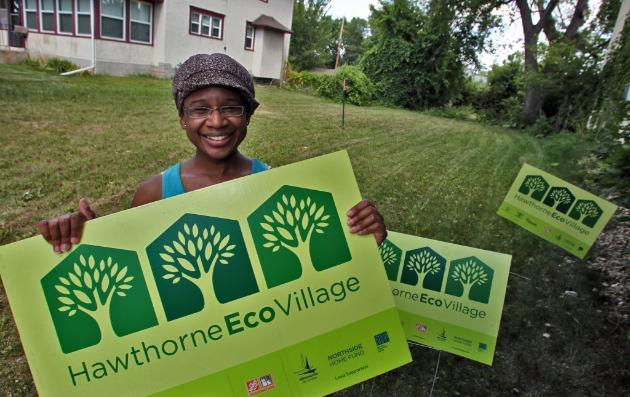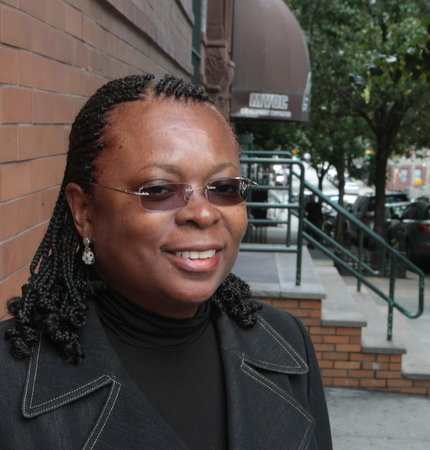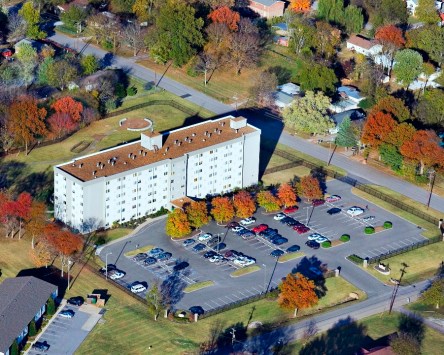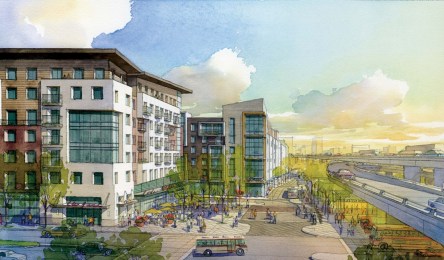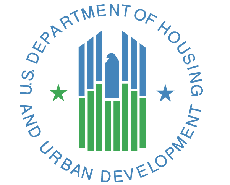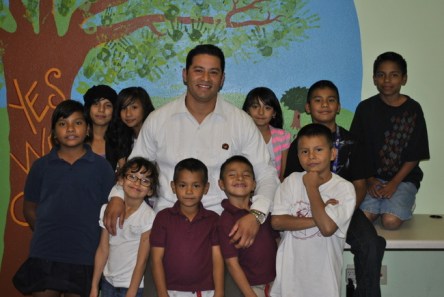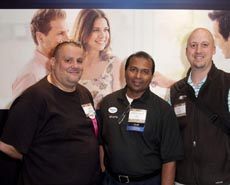You may think you know what affordable housing looks like. Until you’ve taken a look at the amazing variety of projects developed by Twin Cities non-profit Project for Pride in Living, you may be wrong. PPL, serving lower-income families and individuals in Minneapolis and St. Paul for over four decades, has an impressive array of social services programming (we’ll feature these efforts in a forthcoming article) and affordable housing options that have improved lives for thousands of Minnesotans. With a current portfolio of 1,056 affordable housing units, since 1972 PPL has developed or renovated 2,000 housing units during its history. And great projects just keep on coming. Recently we had the opportunity to speak with Chris Wilson, PPL’s Director of Housing and Development, about some of the interesting work that is in the development pipeline for PPL right now. Here are brief snapshots of each of the three projects he shared. Project 1: Rising Cedar, supported living facility, in partnership with Touchstone Mental Health Touchstone Mental Health’s clients are suffering with serious mental illnesses, including schizophrenia, bipolar disorder, and severe depression. The Rising Cedar facility will be a supportive residential environment for 40 individuals, and also house Touchstone Mental Health’s offices and a public Health and Wellness Center focused on the treatment of mental illness. But Rising Cedar will be more than just a multi-use facility. “The project we’re doing is an attempt to marry the latest findings in neuroscience with housing and what we are able to do with the build environment,” Wilson said. Before design of the structure began, Touchstone conducted extensive research into healing environments, and what kind of permanent indoor physical spaces might best benefit their clients. During the design process, potential future residents gave feedback to the PPL team about what features would or would not work for them. Resulting features incorporated into the Rising Cedar design include natural light in every room of the project, even meeting rooms and hallways, constant access to natural surroundings through large windows, and spaces that can be transitioned from open-to-confined to meet residents’ health needs. “They can adjust their environment to suit what they need at that moment,” Wilson said. Rising Cedar is located in Seward, with easy access to the city’s light rail. Its’ Health and Wellness Center services will include psychiatric care, acupuncture, massage therapy, recreation space and other resources. Project 2: Hamline Station, transit-oriented, potentially car free workforce housing The harsh Midwestern winters might lead you to assume otherwise, but Minneapolis/St. Paul ranks as the city as the most bike-able city in the nation, according to Bike Score. Cycling’s prevalence here for commuters, coupled with the expansion of the city’s light rail system between downtown Minneapolis and downtown St. Paul, are leading to new opportunities to live a carless life in the Twin Cities. The Hamline Station project will include 108 units of workforce and family housing in two buildings along University Ave, very close to the Hamline Station. “You could pretty reasonably not have a car and live there, if you take the light rail to work. You could work in either downtown, too, because it’s about halfway in between,” Wilson said. Adding to the potential for a car-free life, the project will feature a bicycle maintenance station and convenient bicycle storage in the underground parking area, there will be an HOURCAR car share vehicle stationed on site, and there is convenient walkable access to shopping, parks and schools. The neighborhood receives a 91 ranking from Walk Score, which equates to a “walkers’ paradise,” according to its standards. The hope is to break ground on the new units in spring 2014. Project 3: Hawthorne EcoVillage, redevelopment with an environmental edge The Hawthorne EcoVillage is a long-term, ongoing project for PPL, partnering with the City of Minneapolis, the Family Housing Fund, the Hawthorne Neighborhood Council, Hennepin County, the Northside Home Fund, and Twin Cities...
45 Years Strong
Manhattan Valley Dev. Corp.
The Manhattan Valley Development Corporation will mark 45 years of providing affordable housing in Manhattan at the end of 2013. As part of the celebration of this milestone anniversary, Yardi client MVDC will award the first Leah Schneider scholarship in honor of the organization’s former director who passed away in 2001. Since 1968, MVDC has maintained a focus on one vital goal: providing and maintaining affordable, safe housing in Manhattan’s upper Westside. Over the years, MVDC rehabilitated and developed more than 1200 housing units, including affordable ownership projects that were sold to residents at below-market prices. Today, MVDC oversees 784 apartments in 47 buildings, serving around 3,000 residents. The ongoing challenge of maintaining affordable housing in New York City, one of the nation’s priciest apartment markets, and serving an aging resident population are two priorities for MVDC Executive Director Lucille McEwen. “There are market forces and gentrification and pressure to create more high-end living in this immediate area, but we’ve always maintained affordable housing and that’s our real focus,” said McEwen (left), an attorney who has a passion for affordable housing and is also a lifelong Manhattan resident. “We are reaching out to other like-minded individuals and organizations to see what we can do collectively.” “One of the things we’re trying to figure out is: How do we get more housing that’s targeted towards low-income seniors? That’s a great need in the community. They can’t afford to move, and they can’t afford these new construction co-ops and condos that are going up. They need the accessibility ramps to get into buildings, and elevators, and other things that help when you have limited mobility.” Many of MVDC’s residents have been living in their apartments for years, even decades. McEwen knows of one man who has...
Total Turnaround
Alco’s Riverwood Recognized
The National Communities of Quality award winners for 2012 were recently announced by NAHMA, and congratulations are in order to Yardi client Alco Management. Alco’s Riverwood Tower Apartments, a senior Section 8 property located in Madison, Tenn, was recognized for “Outstanding Turnaround of a Troubled Property.” Honorees will be recognized at the NAHMA winter meeting in March. The story of Riverwood Apartments’ turnaround is a transformative one. Alco Management, which has a 6,000 unit portfolio based in the Southeast, acquired the 26-year-old property in 2005. When purchased, the 117-unit community in the suburbs of Nashville was not in great shape. It had a high vacancy rate (24 percent), a HUD REAC score of just 42, and a sub-par reputation. “Immediately after the purchase the renovation began. The name was changed to Riverwood Apartments to indicate a new beginning for this 26 year old property,” said Michael Johnson, Alco’s Executive Vice President and Chief Administrative Officer. “Alco was determined that this property would offer a quality life for senior citizens.” Alco made major improvements, including a new fire alarm system, fire safety sprinklers in each unit, electronic keyless entry, security cameras, parking lot redesign, exterior fencing and an indoor and exterior facelift. “Alco believes that a Section 8 property shouldn’t look any different than a conventional property. The apartments got new flooring, thick padded carpets, wood baseboards, and designer color paint,” Johnson said. There was also a renovation of the community common area that changed the way residents use the space. It was partitioned into four rooms (kitchen, dining, media, and community), a change that contributed to greater use. The community’s REAC score jumped from a score of 42 before the purchase to a score of 95 after the work was done. “Riverwood Apartment’s goals...
BRIDGE Housing
Affordable - and transformative
BRIDGE Housing doesn’t just build affordable homes. The longtime affordable housing provider transforms communities. And over the next five years, San Francisco-based BRIDGE, which also has offices in Irvine and San Diego, plans a huge increase in lives touched and neighborhoods changed as it doubles in size. “BRIDGE has always been committed to production, and we remain committed to that. We’ve been thinking in a forward way. We want to use the diversified platform we have built to increase our mission, and we have the capacity to do it,” said BRIDGE CEO Cynthia Parker in a recent interview. In its recently released strategic plan, BRIDGE’s executives and board outline a compelling case for the power of one housing developer – in partner with dozens of other community and government organizations – to affect real progress. And you only have to look as far as some of the BRIDGE projects completed or in progress to see what they are talking about. In San Francisco, BRIDGE is leading the effort to Rebuild Potrero, an ambitious project that will replace over 600 units of public housing in the Potrero Terrace and Annex, add new affordable and market rate homes, and fuse a connection between the vast economic gap that looms between the public housing residents and their neighbors on affluent Potrero Hill. In Los Angeles, BRIDGE is a partner in the Housing Authority of the City of Los Angeles’ efforts to expand and redevelop Jordan Downs, a 700-unit public housing project in Watts. The new construction will replace the existing units, bring mixed-income housing to the area, and add needed retail, industrial and community resources. In San Diego, BRIDGE developers are in progress on Comm 22, a transit-oriented infill project that is transforming four acres in Logan...
2013 Income Limits
Deadline to update is Jan. 25
For our Yardi affordable housing clients, the following information pertains to the 2013 income limit structure. The deadline to update income limits is Friday, Jan. 25. The 2013 income limits as published by HUD were first released on December 4, 2012. Due to miscalculations, HUD released the 2013 Income Limits a second time on December 11, 2012. These new income limits will replace those posted on December 4, 2012. All properties have 45 days from December 11, 2012 to implement the new 2013 income limits. If December 4, 2012 income limits have already been implemented or for additional information regarding income limit implementation, please see the following HUDBlast from industry expert, Mary Ross. What is HUD? HUD (Housing and Urban Development) is a government agency with a mission to “create strong, sustainable, inclusive communities and qualify affordable homes for all.” As the Mission Statement suggests, the focus of the HUD program is to provide affordable housing to those in need. In order to do so, a prospective resident must meet certain restrictions. One of the restrictions is that a household must have a total annual income below a certain amount as specified by HUD. This “limit” is referred to as the income limit. What is an Income Limit? For Affordable Housing, the income limit is the maximum amount a household’s total annual income can be in order to qualify for residency. The Income Limits are generally posted annually and are published by area. The calculation for the income limit is based off of the Area Median Income (AMI) of the specified area and is broken out on a per person basis. For example, if a 4-person household would like to live in an Affordable Housing property. In order to verify if the household qualifies,...
Alfonso R. Trujillo
César Chávez Foundation
When Alfonso R. Trujillo visits the affordable housing communities that he oversees as Director of Property Management for the César Chávez Foundation, he remembers his own childhood. The son of immigrant farmworkers who came to the U.S. in 1972, Trujillo grew up in a Boyle Heights, Los Angeles Affordable Housing Complex. He recalls playing baseball with his friends in the street and the lack of laundry facilities – his mother would hang hand-washed clothes in the common area between apartments. It was a safe place to call home, but there were none of the programs and services that are a priority for the Chávez Foundation, like the Si Se Puede Learning Centers (SSPLC) where kids can get help with homework and learn with their peers after school. “When I visit our SSPLC programs at our César Chávez Foundation affordable housing communities, I’m elated by it,” said Trujillo, who became the first member of his family to earn a post-secondary degree from Cal Poly Pomona. “I’m glad we’re able to give back.” He’s made supporting the families who live in Chávez Foundation’s communities a priority. Rather than outsourcing the running of laundry facilities to a third party vendor, it is now handled in house with profits going to the onsite SSPLC to supplement grant funding. The centers serve students from Kindergarten through sixth grade, and are a vital linchpin between school and home, especially for working parents. Founded by legendary farm worker activist César E. Chávez , the Chávez Foundation’s Housing and Economic Development Fund has developed or refurbished over 4,300 units of housing in California, Arizona, New Mexico and Texas. Portfolio size has grown from $16 million in 1992 to $328 million today. The Chávez Foundation is a Yardi client, using Yardi Voyager to manage its affordable portfolio. Sixty...
Alex Ruiz
Picerne Real Estate Group
With a long history in property management that started in his hometown of New York City, Alex Ruiz of Picerne Real Estate Group is on top of the latest developments in tax credit, project-based Section 8, and public housing agency regulations. Alex was one of the many terrific clients to join us for training at YASC DC this week. He coordinates the use of Yardi products for 128 properties in Picerne’s affordable management division, trains on-site property management staff on how to use Yardi’s systems, and picks up compliance paperwork duty as needed. “It’s an IT job but it’s not really an IT job,” Alex told us. “I get to do a little bit of everything. I visit the properties, interact with the staff, listen to their recommendations, and find out what they want Yardi to do for them. I’m an accountant one day and an IT person the next.” He’s made great use of his former experiences as a property manager, both in New York City and Orlando, in order to better serve his coworkers’ IT needs and implement software and report-writing customizations that allow them to do their jobs more efficiently. “When someone comes with a request or wants to see something in Yardi, I can think the process through from the end user’s perspective,” he said. “And when I do Yardi training, I understand what they go through. When people come into IT straight out of school, they just know the database side, and not the day to day operations for property management or accounting or finance.” One of his major goals is moving the Picerne properties he works with toward a paperless office, which can be tough when compliance requires so much paper work. Procure to Pay is the next...
Affordable and Public Housing News...
Insight from Mark Livanec
Mark Livanec, Vice President of Affordable Housing and PHA Sales at Yardi Systems, is an active advocate for Yardi clients when it comes to state and federal legislation affecting affordable and public housing. Mark serves as secretary of the Board of Directors of the National Affordable Housing Management’s Educational Foundation, which raises scholarship funds for residents in affordable housing developments; he is also a member of the NAA’s Affordable Housing Task Force. Mark was recently in Washington, D.C. to participate in NAHMA’s winter meeting and the NAA Capitol Conference. We asked him to brief us on the latest developments Federal budget – Widespread concern about funding There’s substantial concern about the 2013 federal budget, especially the fact that it has not authorized all affordable housing and public housing programs. SEVRA – the Section Eight Voucher Reform Act – that’s been in place for the last year – is looking at the way housing choice vouchers are being budgeted and reported on. It really has got a many people concerned, especially in the public housing sector as well affordable housing owner-agents, those organizations who are using the housing choice voucher dollars to help pay for resident rent. We are concerned those programs will be cut dramatically. The 2013 budget isn’t even authorizing all of the funds being requested. It’s expected to authorize funds covering only a partial year. There’s a lot of concern about ‘are owners going to be paid on time for voucher payments?’, and ‘are Housing Authorities going to see cuts in the funding and the availability to deliver vouchers?’ Everybody is concerned on the owner-agent side that they will to be able to meet their deliverables. Technology – HUD TRACS 202D update postponed HUD has been working on the TRACS 202D update. ...
Beacon Now Available
Affordable Housing News
A new software solution for smaller affordable housing property managers and public housing authorities is now available from Yardi Systems. Yardi Beacon™ a browser-based software solution, provides seamless integration of property management, accounting and compliance features. The product includes a complete online property management system with an integrated general ledger including accounts payable, accounts receivable and journal entries. Property managers will be able to more easily handle leasing, work orders, wait lists, letter management and a comprehensive list of standard reports. Optional resident screening capabilities will help affordable housing managers consistently select and retain low-risk residents. “With Yardi Beacon, agencies and affordable managers can focus more on resident management and less on IT expertise. An organization does not need to install software on its computers or network. Users access the product and their data securely using an internet connection,” said Mark Livanec, vice president of Affordable Housing & PHA Sales for Yardi. Standard compliance features of Yardi Beacon include Section 42, Low Income Housing Tax Credit (LIHTC,) HOME, and Department of Housing and Urban Development 50058 for Public Housing and Housing Choice Vouchers (HCV.) Compliance for HUD 50059 subsidies will be available in the first half of...

